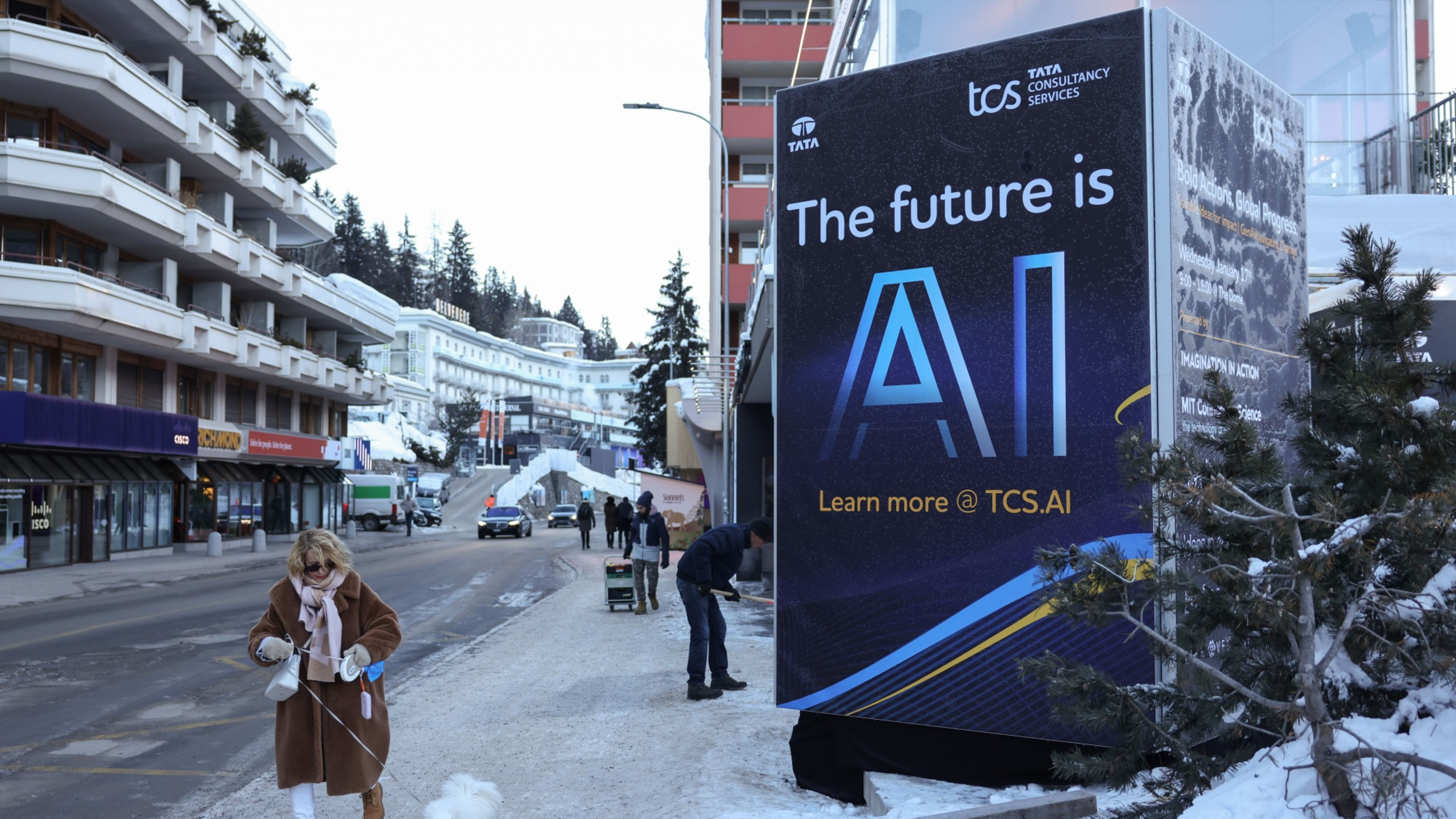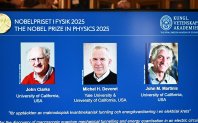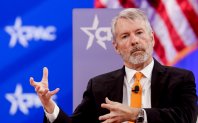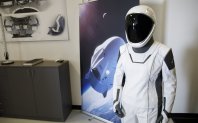
By Dobroslav Dimitrov
“We didn't do anything wrong, but somehow, we lost”, those are the last words with which Nokia CEO Stephen Elop addressed, through tears, his employees, before he quit, after Microsoft Corp. bought the company, once world leader in the mobile phone industry, but now completely stuck.
In his book The Infinite Game, Simon Sinek describes the difference between finite and infinite games, and the importance of distinguishing between the two. How to win a game with no rules, no beginning, no end, and not even definite participants? The answer is: there is no way of winning. The purpose of the infinite game is to stay on board as long as possible. And the method is to improve every day. Basically, everyone competes with themselves. If one stops improving, they just drops out. Business, life, history – they are all infinite games. No one has ever “won” business, nor life. One can lose both, though. Infinite games are made out of plenty of finite games, turning points which decide if one drops out or continues.
There are many turning points in the history of mankind, when all changes for everyone. These moments are remembered long after, and they usually depend on one of two main factors: natural disaster or technological progress. Those are the moments when the world changes completely in a blink of an eye.
In recent history, we know the exact dates and the names related to such moments. For example, 16 July 1945, Trinity – the date and the name of the first nuclear explosion. In a blink of an eye, people ended up in a brand new world where the human being had the potential to destroy the planet.
Or 30 November 2022 – in a blink of an eye a new Industrial Revolution took place, the one of Artificial Intelligence. Even though the technology has been developed since the 1970s, the appearance of ChatGPT was the Trinity moment of our generation.
Game-changing technologies can be divided in two groups: critical ones which give definite advantage to some individuals; and technologies of mass application which change the whole world in unexpected directions.
Critical technologies, such as the nuclear bomb, guarantee the control of the World Order to one or few countries. Technologies of mass application, however, “control” everyone, no matter to what extent each of us realizes it. Like electricity, for instance, they affect us all on personal level; we all use electricity without stopping to think every time or trying to understand how exactly it works and what its importance for civilization is.
Now, for the first time in history, we have a technology that does both – gives critical advantage for dominance, and is of mass application. Artificial intelligence is as important for the countries as is the nuclear weapon, but, at the same time, it affects each and every one personally, and might have unexpected consequences, on state, corporation/company, and individual level.
On individual level, the issue of social inequalities becomes a completely new field. Until now, we have treated gender and generational inequalities, unequal resources, differences between ethnic, cultural, religious, or national groups. Now, a new bigger gap has appeared and is constantly growing. Artificial Intelligence is the multiplier of our resources which increases the inequality between those who use it and those who don’t. If in the past we used to signify inequalities between the different people in percentages, now differences are as big as 10, 50, or 100 times. Therefore, it’s about inequalities that are impossible to abolish.
It’s not that AI shall occupy work places, people who use AI will.
Companies discover the notion of “unlimited”. In the past, companies had to face physical and financial limitations which stopped a particular organization from becoming the global monopolist. At some point, the company became so big that no process optimization could compensate the inefficiency caused by the scale. Such a company used to be forced to stop expanding. Now, on the contrary, Artificial Intelligence can overcome this natural limitation. Business shall be ruled by the concept of “the winner takes it all”. Google has already proven this, by becoming not only the best, but the only search engine, processing 97% of all the searches around the world. As simple as that – nobody is motivated to use the second best searching engine, if they can use the first.
Another important aspect is rethinking the relation talent-capital. Given that we have a technology that multiplies our competence, what kind and how much of a competence one multiplies become crucial. All the money in the world wouldn’t make you competitive, if you don’t count on the right people. We saw it happen in the case of OpenAI – at the beginning, it overtook the others, including Google, by far. Then, the attempt of firing the CEO of OpenAI made 700 employees threaten the company that they would leave unless the Board of Directors resigned and restored the CEO Sam Altman within 24 hours. There was no other way out but to fulfill that ultimatum because otherwise the company, worth USD 70 billion, would disappear after all its employees quit.
Some important challenges emerge for states and societies. The phenomenon of the “exponential citizen”, described by Asim Azhar, is a key for understanding contemporary social transformations. People like Elon Musk, Mark Zuckerberg, or Bill Gates were not elected and they do not have any delegated powers to lead the public discussion. Nonetheless, they do so, and their influence on the public is huge. Twitter “expelled” a US President in duty from the platform, and the decision was made by a small circle of managers just because they didn’t like him. No matter that Twitter used to be the main communication channel for Trump. And it all happened although Trump (regardless of who likes him and who doesn’t) was voted by 100 million Americans, while Twitter’s managers were never voted for on any election.
Last but not least, the balance between the free world and the autocratic regimes has changed. The main reason why democracies have prevailed in every competition for establishing a social order until now, is that the freedom of expression of the individual creates a very effective system for innovations and, consequently, for economic growth. With Artificial Intelligence such advantage of democracy can be easily erased. The nature of the Artificial Intelligence gives prevalence to the centralized approach – the more data and the more computing power are gathered together, the better the result. Securing all that is way easier and faster in autocratic regimes because they don’t need to comply with any regulations or proceedings. In this sense, the free world is currently facing the biggest challenge so far. Once again, paradoxically, this happens because of a technology which it has created itself.
So now, the logical question before us is: How to behave, as people, companies and states, in the new world of Artificial Intelligence? The same decision is to be applied on each level, and it belongs to the individual. We have witnessed the turn and remodeling of economy, where capital is far from leading, and talent has definitely conquered the first place. Future is in technology, but the individual stays at the heart of technology.
On individual level, technological skills become crucial. In the technological age, the ability to use technology properly is as important as reading and writing skills. Each profession will require technical skills, therefore it will become the new basic competence. Everyone will have to use the multiplier Artificial Intelligence in order to stay competitive.
For companies, this new world is making the human resources the most valuable asset, while the phrase “no one is indispensable” has lost credibility.
On the level of the state, ensuring talent should be considered as an element of national security. But we definitely don’t have 10 years to adapt our education to the new reality. In a rapidly changing technological world, if the state can’t count on the relevant people with the relevant skills, it will lag ages behind the others, which represents an existential threat. Critical thinking, the ability to handle unfamiliar situations, the competence to analyze and acquire knowledge become the decisive skills. The career of the future is Thinking.
In this context, Bulgaria should focus on attracting talent from abroad, Bulgarian citizens should come back and newcomers should be welcome. We should develop the Brand Bulgaria so that people around the world start recognizing our country not only as a cheap tourist destination, but as a place to move in with their families, to do business and to develop a career; as a healthy environment where technology is welcome. Otherwise, there will be no talent, no technology, no future.
The Chinese word for crisis or turning point is weiji (危機), a compound word which combines the concepts of danger and opportunity. Another word, a Greek legacy – κρίσης – also puts together the meanings of crisis and turning point. Undoubtedly, whenever a big change – like the one that Artificial Intelligence brings – happens, it’s important to recognize the risk, but it’s even more important to be brave and make the right decisions. It’s the only way to avoid to end on the side of the losers like Nokia did! It is no longer enough not to do anything wrong. One should do everything right.
THE BOTTOM LINE Game-changing technologies can be divided in two groups: critical ones which give definite advantage to some individuals; and technologies of mass application which change the whole world in unexpected directions.



